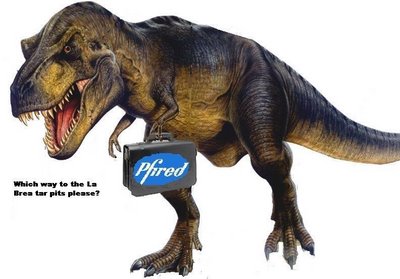
From Alex Berenson at the NYT:
Pfizer, the world’s largest drug company, said yesterday that it would lay off almost 2,400 sales representatives and managers, which is a fifth of its United States sales force but only 2 percent of its overall worldwide work force.
The move may indicate the beginning of a wider retrenchment by Pfizer and the rest of the drug industry.
Drug makers have sharply increased the size of their sales forces over the last decade as the research productivity of the companies has plunged and the pipeline of important new drugs has dwindled.
The bloated sales forces, analysts say, have alienated doctors and contributed to high drug prices.
Because Pfizer led the sales force expansion, other companies will probably follow its decision to cut back, said Michael Krensavage, a drug industry analyst at Raymond James.
“The other companies were reluctant to cut their sales forces while Pfizer was continuing to have people on the ground,” he said. “It seems like it’s the end of an arms race.”
Pfizer, the world’s largest drug company, said yesterday that it would lay off almost 2,400 sales representatives and managers, which is a fifth of its United States sales force but only 2 percent of its overall worldwide work force.
The move may indicate the beginning of a wider retrenchment by Pfizer and the rest of the drug industry.
Drug makers have sharply increased the size of their sales forces over the last decade as the research productivity of the companies has plunged and the pipeline of important new drugs has dwindled.
The bloated sales forces, analysts say, have alienated doctors and contributed to high drug prices.
Because Pfizer led the sales force expansion, other companies will probably follow its decision to cut back, said Michael Krensavage, a drug industry analyst at Raymond James.
“The other companies were reluctant to cut their sales forces while Pfizer was continuing to have people on the ground,” he said. “It seems like it’s the end of an arms race.”
1 comment:
I think that the recent elections has alot to do with Phizer's decision for the recent cutbacks. However I found this article from former Vice President of Pfizer interesting,
"So why is Pfizer doing this?
For those of you who don’t know, Pfizer is trying to achieve annual savings of $4 billion by 2008.
2000 reps, with a salary cost of $100,000, plus car and a few other costs, probably no more than a total of $200,000 brings in a saving of about $400 million a year. That’s not exactly chicken shit, but it is less than 1% of Pfizer revenue and only about 3% of profit.
No major celebration from Wall Street in sight based on those cutbacks.
So, again, why is Pfizer doing this and why now?
Simple.
On Thursday, November 30, 2006 at 10:00 AM EST, Pfizer will hold its 2006 Analyst Meeting. And they probably don’t have terrific news. So they want to show they can be tough. Instill confidence in the Wall Street types.
And that’s the reason they do this now.
After all, when Pfizer’s biggest new product, torcetrapib, which reduces cholesterol, turns out to actually raise blood pressure, well, then a mass-firing of sales reps may detract some of the attention from Pfizer’s dry pipeline.
But there is more. When we look back at the drug industry, ten years from now, we will probably recognize that this was the turning point, when an entire industry started seriously contracting. So if you own drug company stocks, watch out. The worst may yet come.
Post a Comment